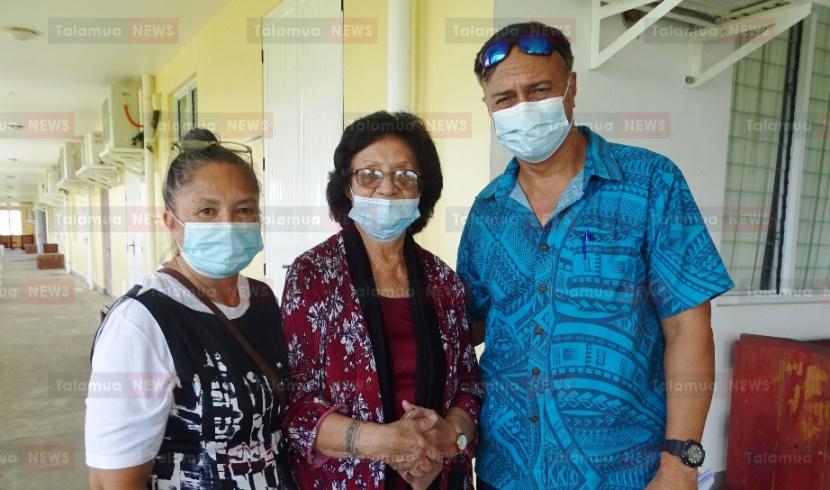Court
Court of Appeal says case was without merit right from the start

By Lagi Keresoma
APIA, SAMOA – 13 MAY 2022: The Court of Appeal has dismissed the appeal by Fagafagamanualii Theresa McCarthy against the Supreme Court decision of July 2020 saying that “the case was without merit right from the start.”
“It is most regrettable that Mrs McCarthy’s counsel did not recognize that her case was devoid of any merit from the outset before advancing this appeal, which we add for the sake of completeness did not raise any questions of general importance for the law of Samoa about the misconstruction or misuse of the meanings of English words,” the court ruled.
Fagafagamanualii is also ordered to pay Samoa National Provident Fund (SNPF) $5000 together with usual disbursements.
The decision also noted that “were it not for Mrs McCarthy’s impecuniosity, as Mrs Woodroffe has explained it to us, we would have awarded indemnity costs in recognition of the hopeless nature of her appeal.”
Background to the appeal
The appeal is the closure to a longstanding land dispute between Fagafagamanualii (Appellant) and SNPF (Respondent) over the transference of land by the Government to SNPF.
Around 1994/1995, the Appellant registered the lands with the Director of Land and Survey and procured a sub-division scheme plans for her lands at Fugalei which showed Parcels 387 and 385 to be formed and dedicated as public roads known as Toamalamala and Tavaetoto Street.
The Government then proceeded on the basis that the roads had been vested in it.
In the 2020 trial, it came out that after obtaining the approved sub-division plan, the Appellant established a 20 room new hotel adjacent to the old 10 room Blue Pacific Hotel and on the land she already agreed to set aside as public roads.
The Appellant then mortgaged the old hotel property with SNPF for a substantial loan of ST$1.139 million in 2001 to refinance her existing loan and to complete the construction of the new hotel.
The loan was secured by a Memorandum of Mortgage over Parcel 426 plus four other adjacent parcels of her land and when the loan was in default, SNPF based on its power of sale, bought the old hotel property.
In 2005, the Supreme Court approved SNPF application to sell the land.
Time went by and the Government transferred the land under SNPF in the transaction challenged in the appeal hearing.
In Justice Clarke’s decision of 2020 it stated that it was necessary to create a new road for public access.
“I found that the parties attempted to effect this objective by submitting for registration in October 2007 a new plan of subdivision of the surrounding land with both the SNPF and the Moghbelpour family agreeing to give up parts of their land to accommodate a new road in exchange for Parcels 387 and 385. We infer that the SNPF participated in the process in anticipation of acquiring ownership of the secured property. Presumably it was in control of the land by then.” Justice Clarke.
The Court of Appeal noted that political intervention had a hand in the delayed sale process for some years until January 2008, SNPF was able to exercise its power of sale and bought Parcel 426 and four other parcels.
SNPF later formed an agreement for the Appellant to lease the property but eight months later, the Appellant fell into arrears and SNPF issued proceedings of evictions against the Appellant.
“These events generated a considerable amount of ancillary litigation. It is unnecessary for us to venture into its detail. Our concern is with the proceedings which Mrs McCarthy issued against the SNPF in the Supreme Court. She claimed very substantial damages on the grounds of negligence and unjust enrichment. Mrs McCarthy appeals against Clarke J’s dismissal of her claim,” said the Court of Appeal.
Confusing interpretation of English words
Counsel for the Appellant, Leuluaialii Olinda Woodroffe submitted during the appeal hearing that the valuation report prepared for SNPF for the sale of the property in the late 2007 was wrongly interpreted.
The report said “an improvement to Lot 426” but Leuluaialii pointed out it was not an “improvement but slightly encroached onto parcel 426.
The Court of Appeal said Leuluaialii relied on this alleged mistake that SNPF wrongfully included the land in Parcel 387 within the secured property which it then transferred to itself when exercising its power of sale as mortgagee, setting in train the events which led to this claim.
“An ancillary proposition, the relevance of which escapes us, was that even though Toamalama and Tavaetoto Street were shown on various plans as “streets”, they were in fact unformed roads,” said the Court.
Leuluaialii also emphasized the point raised by Justice Clarke in his decision that Parcel 387 was never lawfully dedicated as a public road.
She argued that the Appellant was wrongfully deprived of ownership of Parcel 387 and is now entitled to its recovery.
She also argued that Justice Clarke “erred in finding that the land was not acquired through the mortgage sale process but was separately transferred by the Government to SNPF some years later.”
However, the Court of Appeal noted Justice Clarkes point that the Appellant’s monetary claim in negligence were barred by section (1) of the Limitation Act 1975 nearly six years out of time.
For unjust enrichment, the Court of Appeal finds that Leuluaialii did not develop an argument to challenge Justice Clarke’s dismissal of the Appellant’s alternative cause of action.
The Court of Appeal said the Appellant was the cause of her own misfortune and responsible for all the problems that sought compensation for and that her case was without merit from the outset before advancing to appeal.
The Court of Appeal was presided over by Honourable Chief Justice Satiu Simativa Perese, Honourable Justice Harrison and Honourable Justice Blanchard.
Counsels were Leuluaialii Olinda Woodroffe for the Appellant and Semi Leung Wai for the Respondent (SNPF).





















